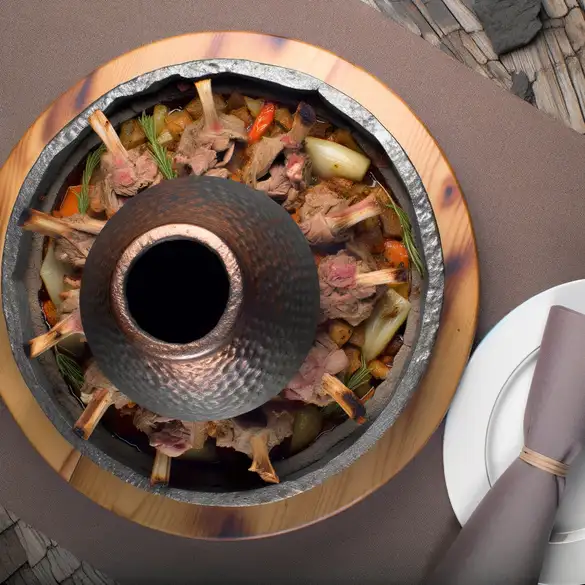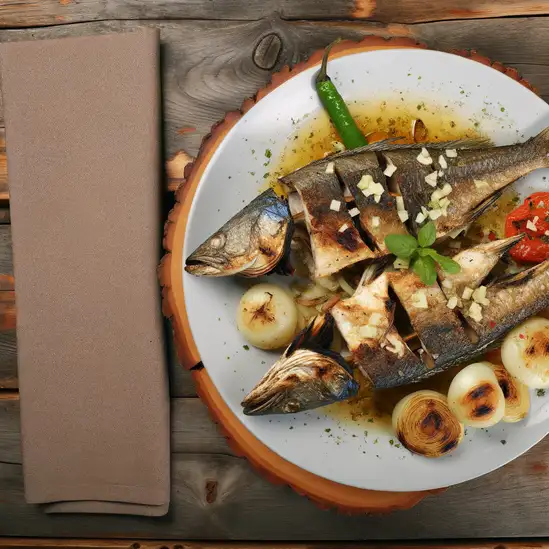



If you ever find yourself craving a place where the sea breeze carries the scent of pine and citrus,Mali Lošinj is that kind of magic. This charming Croatian town feels like a warm embrace—laid-back yet alive with a gentle buzz. Strolling along its waterfront,you’ll hear the soft clinking of glasses from cozy cafés,the distant chatter of locals,and the occasional splash of waves against the harbor. The sunlight dances on the water,casting a shimmering glow that makes every moment feel a little more golden. What really sets Mali Lošinj apart is its blend of old-world charm and vibrant island life. The narrow cobblestone streets wind past pastel-colored houses,fragrant gardens,and bustling markets where fresh seafood and local honey tempt your taste buds. You can almost taste the Adriatic in every bite of grilled fish,paired with a crisp glass of local white wine. The town’s maritime history whispers through its museums and the stories shared by friendly shopkeepers and fishermen. But beyond the sights and flavors,Mali Lošinj has a rhythm that invites you to slow down and savor life. Whether you’re cycling through fragrant pine forests,lounging on a sun-dappled beach,or watching the sunset paint the sky in fiery hues,there’s a peacefulness here that stays with you long after you leave. It’s a place that feels both timeless and refreshingly alive—perfect for anyone looking to reconnect with nature,culture,and a genuine sense of place.
The information on this page is currently being reviewed by Tripkliq and should be used as a guide only
Eng word: Hello
Eng pronunciation: Bohk
Local language: Bok
Eng word: Goodbye
Eng pronunciation: Doh-vee-jen-ya
Local language: Doviđenja
Eng word: Thank you
Eng pronunciation: Hvah-lah
Local language: Hvala
Eng word: How much
Eng pronunciation: Koh-lee-koh
Local language: Koliko
Eng word: Toilet
Eng pronunciation: Toh-ah-let
Local language: Toalet
Eng word: Help me
Eng pronunciation: Poh-moh-zee mee
Local language: Pomozi mi
Eng word: Yes
Eng pronunciation: Dah
Local language: Da
Eng word: No
Eng pronunciation: Neh
Local language: Ne
Eng word: Excuse me
Eng pronunciation: Oh-proh-stee-teh
Local language: Oprostite
Mali Lošinj has roots dating back to the Roman era, with archaeological findings indicating that the area was inhabited as early as the 12th century BC.
In the 15th century, Mali Lošinj came under Venetian rule, which significantly influenced its architecture and culture, leaving a lasting legacy visible in the town's buildings and layout.
By the 19th century, Mali Lošinj had become one of the most important maritime centers in the Adriatic, boasting a fleet of over 150 ships and a thriving shipbuilding industry.
During the Austro-Hungarian period, Mali Lošinj flourished as a popular tourist destination, attracting visitors with its mild climate and beautiful landscapes.
In the late 19th and early 20th centuries, Mali Lošinj gained fame as a health resort, known for its clean air and therapeutic climate, which continue to attract health-conscious visitors today.
In 1999, a well-preserved ancient Greek statue known as the Apoxyomenos was discovered in the waters near Mali Lošinj. This remarkable find is now displayed in the Museum of Apoxyomenos in the town.
Mali Lošinj hosts numerous cultural festivals throughout the year, celebrating its rich history and traditions, including the Lošinj Days of Bio-Diversity and the Lošinj Culinary Festival.
The town is home to several historic churches, such as the Church of St. Martin, dating back to the 15th century, and the Church of the Nativity of the Virgin, showcasing beautiful baroque architecture.
Mali Lošinj is renowned for its aromatic gardens, which feature a variety of medicinal and aromatic plants. These gardens reflect the town's historical connection to natural healing and wellness.
In Mali Lošinj, the most common Power Adaptor is Type C, Type F.



An omelette-like dish made with seasonal vegetables, herbs, and sometimes seafood, reflecting the local flavors.

Local cheese made from sheep or goat milk, known for its rich flavor and often enjoyed with olives and bread.

A slow-cooked dish made with meat (often lamb or octopus) and vegetables, prepared under a bell-like lid covered with embers.

Grilled fish, typically fresh catch from the Adriatic Sea, seasoned with olive oil, lemon, and herbs.

Croatian-style crepes that can be filled with a variety of sweet or savory fillings, popular as a dessert or snack.

A seafood stew made with shellfish, tomatoes, garlic, and white wine, often served with crusty bread.


A traditional dish made with shrimp cooked in a sauce of garlic, parsley, and white wine, often served with polenta.
If you ever find yourself wandering through Split,it’s like stepping into a living,breathing storybook where ancient history and vibrant modern life dance together effortlessly. The moment you stroll along the Riva promenade,the salty breeze from the Adriatic mingles with the aroma of fresh espresso and grilled seafood wafting from nearby cafés. Locals chat animatedly in the sun-dappled squares,their laughter blending with the distant hum of boats bobbing gently in the harbor. There’s a laid-back energy here that feels both timeless and alive,inviting you to slow down and soak it all in.
Split’s heart beats strongest in Diocletian’s Palace,a sprawling Roman fortress that’s less a museum and more a neighborhood where people live,shop,and gather. Walking through its ancient stone alleys,you’ll catch glimpses of colorful markets,artisan shops,and cozy taverns tucked into centuries-old walls. At night,the city transforms as lanterns flicker on,and the sound of live klapa singing—traditional a cappella harmonies—drifts through the air,wrapping you in a warm,soulful embrace.
What really makes Split unforgettable is how effortlessly it blends the old with the new. You can savor a plate of fresh octopus salad while watching fishermen haul in their catch,then wander to a rooftop bar for a cocktail as the sun sets behind the islands. It’s a place where every corner tells a story,every meal feels like a celebration,and every moment invites you to become part of its ongoing tale.
If you ever find yourself wandering through the sun-drenched streets of Dubrovnik,you’ll immediately feel like you’ve stepped into a living storybook. The city’s ancient stone walls rise proudly against the sparkling Adriatic,and as you stroll along the marble-paved Stradun,the salty sea breeze mingles with the scent of fresh pine and blooming bougainvillea. There’s a rhythm here—a gentle hum of life where history and modern charm dance together effortlessly.
Dubrovnik’s character is woven into every corner:the clatter of café cups,the murmur of locals chatting in cozy taverns,and the distant call of seagulls overhead. You can almost taste the city in the air—briny and fresh,with hints of grilled seafood and ripe figs from the markets. Sitting at a seaside restaurant,watching the sun dip behind the fortress walls,you’ll savor dishes bursting with Mediterranean flavors,paired with a glass of crisp Croatian white wine.
What makes Dubrovnik truly special is how it balances its rich past with a vibrant present. The city’s narrow alleys invite exploration,revealing tucked-away galleries,artisan shops,and lively squares where music spills out into the streets. Whether you’re tracing the footsteps of ancient mariners or simply soaking up the golden light on a quiet terrace,Dubrovnik feels like a warm embrace—inviting,timeless,and utterly unforgettable.
If you ever find yourself wandering the Dalmatian coast,Zadar is one of those places that sneaks up on you with its quiet charm and unexpected magic. The moment you step onto its ancient stone streets,there’s this warm,timeless feeling—like the city is gently humming a tune just for you. The salty breeze from the Adriatic mingles with the scent of fresh pine and blooming jasmine,wrapping around you as you stroll along the waterfront. It’s a place where history isn’t just in museums; it’s alive in the crumbling Roman ruins,the medieval churches,and the lively squares where locals gather to chat and sip coffee.
What really sets Zadar apart is its playful spirit. You’ll hear it in the waves as they dance through the Sea Organ,an extraordinary installation that turns the sea’s movement into haunting melodies. And just a few steps away,the Sun Salutation lights up the night with a mesmerizing display of colors,making the waterfront feel like a celebration of nature and art. Grab a seat on the stone benches,watch the sun dip below the horizon,and you’ll understand why Alfred Hitchcock once called Zadar the most beautiful sunset in the world.
The city’s vibe is relaxed but vibrant,with cozy konobas serving up fresh seafood and local wines that taste like the essence of the region. Whether you’re wandering through the bustling market,exploring narrow alleys,or simply soaking in the views from a café terrace,Zadar invites you to slow down,breathe deeply,and savor every moment.
If you ever find yourself wandering the Istrian coast,Pula is the kind of place that wraps around you like a warm,familiar hug. There’s this effortless blend of ancient history and laid-back seaside charm that makes the city pulse with life. Imagine strolling through streets where Roman ruins peek out from behind cozy cafes,their stone walls whispering stories of gladiators and emperors. The air carries a salty breeze mixed with the aroma of fresh seafood grilling nearby,and the chatter of locals and tourists blends into a lively,welcoming hum.
What really sets Pula apart is its character—it''s not just a city frozen in time but one that wears its history with pride while embracing the present. You’ll find yourself lingering in the shadow of the massive amphitheater,marveling at how it’s still so alive,hosting concerts and events that make the ancient stones vibrate with modern energy. The narrow alleys invite you to explore little artisan shops and family-run trattorias where you can savor Istrian truffles,fresh olives,and a glass of local Malvazija wine that tastes like sunshine.
Evenings in Pula have a special magic. The golden light softens the city’s edges,and the sea reflects a palette of pinks and purples. Sitting by the harbor,you can hear the gentle lapping of waves and the distant laughter from a nearby tavern. It’s a place that feels both timeless and alive,where every corner invites you to slow down,breathe in the moment,and soak up a culture that’s as rich as the land itself.
Imagine stepping into a sun-drenched town where lavender-scented breezes mingle with the salty kiss of the Adriatic Sea—that’s Hvar for you. From the moment you wander through its ancient stone streets,there’s a relaxed yet vibrant energy that wraps around you like a warm embrace. The sunlight bounces off terracotta rooftops,and the sound of laughter spills out from cozy cafés where locals sip espresso and chat animatedly. It’s a place where history and modern life dance effortlessly together.
As you stroll along the harbor,sleek yachts bob gently beside fishing boats,and the air carries the faint aroma of grilled seafood and fresh herbs. The town’s medieval walls and the imposing fortress overlooking the bay tell stories of centuries past,while the lively markets burst with ripe figs,olives,and sun-ripened tomatoes. At sunset,the sky blazes in shades of pink and gold,and the waterfront buzzes with music drifting from open-air bars,inviting you to linger just a little longer.
What makes Hvar truly special is its blend of authenticity and joie de vivre. It’s not just a place to see but a place to feel—whether you’re savoring a glass of local Plavac Mali wine,exploring hidden coves by boat,or simply watching the world go by from a shaded terrace. Hvar’s charm lies in its ability to make you slow down,breathe deeply,and soak in the simple pleasures of life by the sea.
If you ever find yourself dreaming of a place where the sea breeze carries the scent of pine and fresh espresso,Rovinj should be at the top of your list. Walking through its narrow,cobbled streets feels like stepping into a living postcard—colorful houses lean into each other,their pastel facades glowing warmly in the afternoon sun. The town hums with a gentle rhythm:fishermen mending nets by the harbor,the distant chatter of locals sharing stories over glasses of Malvazija wine,and the soft lapping of waves against ancient stone walls.
What really makes Rovinj special is its blend of old-world charm and vibrant life. The scent of grilled seafood wafts from seaside tavernas,mingling with the salty air,tempting you to sit down and savor freshly caught calamari or a plate of truffle pasta. Climbing the bell tower of St. Euphemia’s Church rewards you with sweeping views of terracotta rooftops and the shimmering Adriatic stretching out to the horizon. It’s a place where history whispers from every corner,yet the energy feels alive and inviting.
Beyond the town,the surrounding nature invites you to explore—whether it’s cycling through fragrant pine forests or dipping into crystal-clear coves. Rovinj isn’t just a destination; it’s a feeling of slow,joyful discovery,where every moment invites you to pause,breathe,and soak in the simple pleasures of coastal life.
Some operators may advertise boat tours with exaggerated promises, such as visiting exclusive spots, but deliver a subpar experience.
Tourists may be offered unfavorable exchange rates or charged hidden fees at unofficial currency exchange offices.
Scammers may create fake online listings for apartments or villas, asking for deposits upfront and disappearing after payment.
Some taxi drivers may charge tourists significantly higher fares, especially for short distances or late-night rides.
Individuals posing as parking attendants may charge tourists for parking in free or public areas.
Some restaurants may inflate bills by adding items not ordered or charging higher prices than those listed on the menu.
Street vendors may sell souvenirs or local products at inflated prices, targeting tourists unfamiliar with the actual value.
The possession, use, and distribution of illegal drugs are strictly prohibited in Mali Lošinj, as in the rest of Croatia. Penalties for drug-related offenses can be severe, including fines and imprisonment. Tourists should be aware that even small amounts of illegal substances can lead to legal consequences. It is important to respect local laws and avoid any involvement with illegal drugs during your stay.
In Mali Lošinj, Croatia, smoking is generally prohibited in enclosed public spaces, including restaurants, cafes, and public transportation. However, some establishments may have designated smoking areas. Smoking is also restricted in certain outdoor areas, such as playgrounds and sports facilities. Tourists should look for 'No Smoking' signs and adhere to local regulations to avoid fines.
Vaping in Mali Lošinj follows similar regulations to smoking. It is prohibited in enclosed public spaces and certain outdoor areas. While vaping is not as widely regulated as smoking, it is advisable to follow the same guidelines and look for designated areas where vaping is allowed. Tourists should be considerate of others and avoid vaping in crowded or restricted areas.
What are other people saying about Mali Lošinj?
Recent Social posts about Mali Lošinj
There is nothing to show you for now.